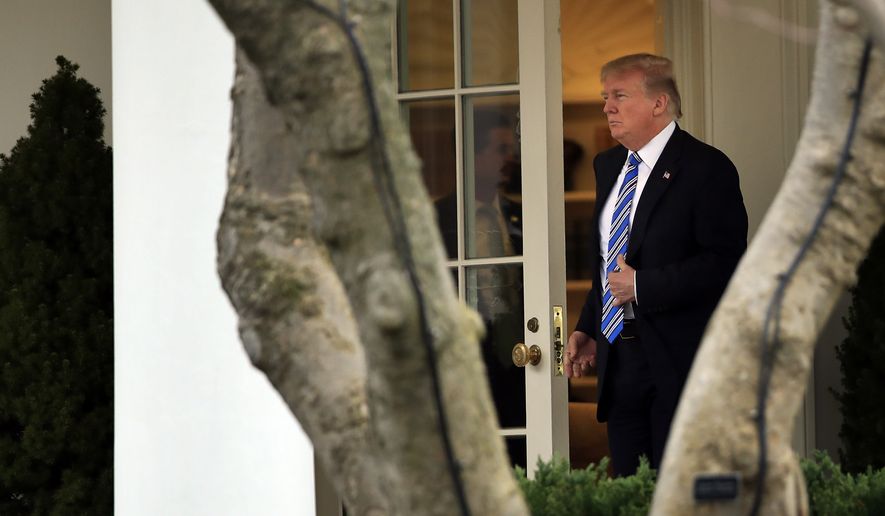Mike Pompeo is the man who gives President Trump bad news daily.
As director of the CIA, Mr. Pompeo travels most mornings from the agency’s headquarters in Langley to the White House to present Mr. Trump with a classified report of global hot spots and national security emergencies known as the Presidential Daily Brief, or PDB.
The highly sensitive briefings take place in the Oval Office in late morning, normally for 30 or 40 minutes. Usually in attendance are National Security Adviser H.R. McMaster, Director of National Intelligence Dan Coats, Vice President Mike Pence, and another CIA officer.
Mr. Trump prefers a spoken presentation to a written report, and so it’s normally Mr. Pompeo’s responsibility to give the president the summary of bad things that happened overnight and other problems brewing around the world.
“Someone shouts, ’Pompeo, you’re in,’ and I take a deep breath, and then we deliver it to him,” Mr. Pompeo said in a rare public appearance at the American Enterprise Institute in January. “We present the president with the most exquisite information any policymaker would ever have the privilege of having a chance to read.”
The president, who tapped Mr. Pompeo on Tuesday to replace fired Secretary of State Rex W. Tillerson, said he has a better “chemistry” with Mr. Pompeo than he did with Mr. Tillerson.
SEE ALSO: Donald Trump ousts Rex Tillerson, taps CIA Director Mike Pompeo for State Dept.
“We have a very similar thought process,” Mr. Trump told reporters. “We’re always on the same wavelength. The relationship has been very good and that’s what I need as secretary of state.”
Mr. Pompeo said he offers the PDB information to the president in three “buckets” — an urgent problem from overnight, such as Turkish forces moving into Syria in late January; another potential crisis that’s looming the near future; and a broader, long-range strategic issue.
“The president asks hard questions,” he said at the AEI forum. “He’s deeply engaged. We’ll have rambunctious back and forth, all aimed at making sure we’re delivering him the truth as best we understand it. He’ll ask questions from time to time that we frankly don’t have the answer to. [Either] we didn’t bring it, or we just — weren’t as complete as we need it to be. We’ll go back and within a couple of hours deliver that information as best we can. It is a process.”
Aides say these meetings, held most days unless the president is traveling, have contributed to the rapport between Mr. Trump and his new nominee for secretary of state.
⦁ Guy Taylor contributed to this report.
• Dave Boyer can be reached at dboyer@washingtontimes.com.




Please read our comment policy before commenting.